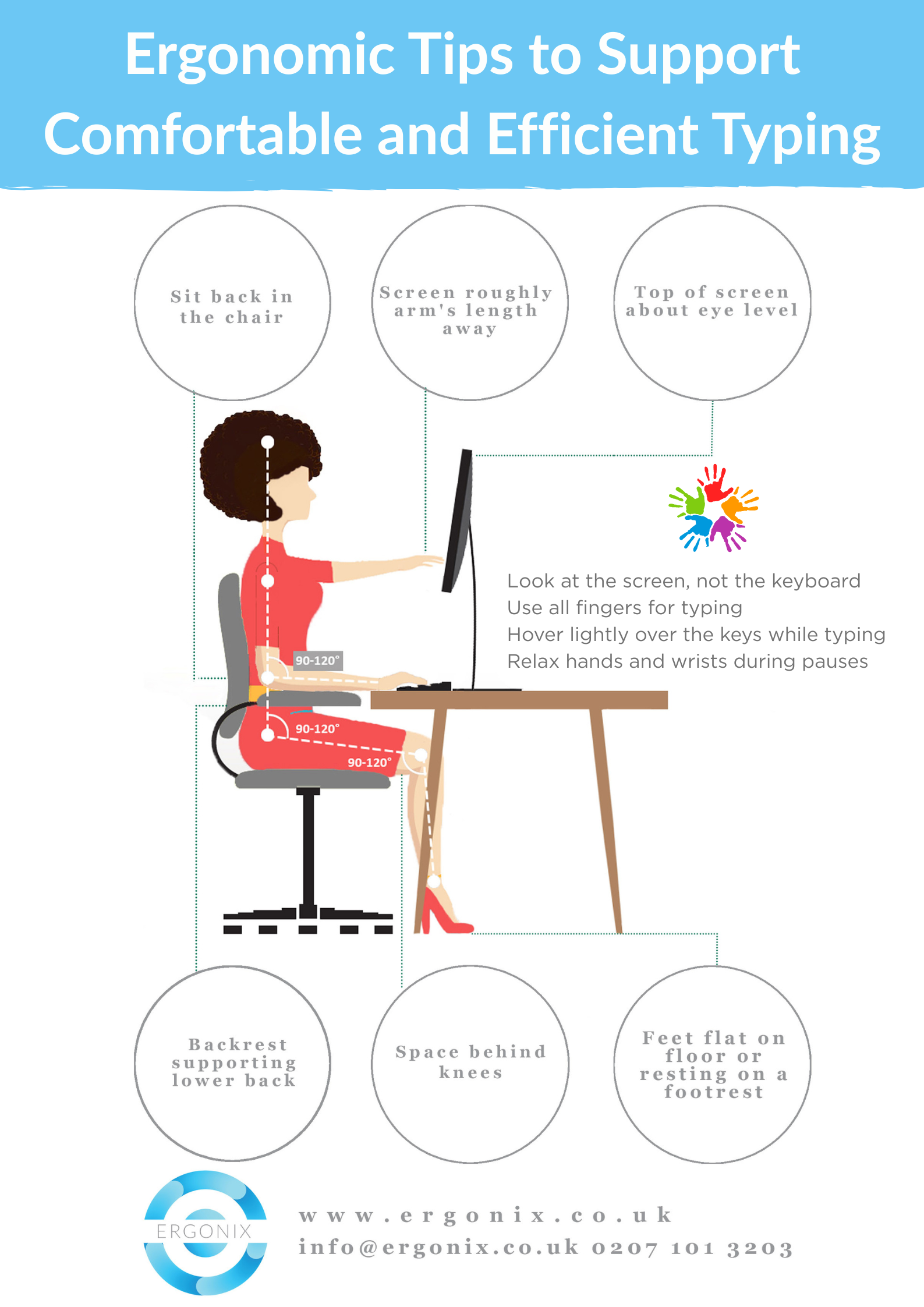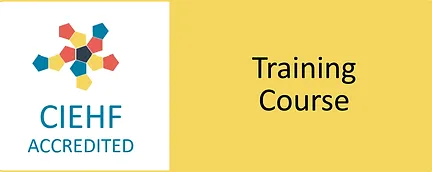Every year, UK businesses lose millions of working days due to preventable musculoskeletal issues.
 Workplace musculoskeletal (MSK) conditions remain one of the leading causes of employee absence in the UK. According to the Health and Safety Executive (HSE), work-related musculoskeletal disorders affected around 543,000 workers in 2023/24, resulting in 7.8 million lost working days. These absences carry significant costs for employers, including lost productivity, temporary cover, and staff turnover. Yet many organisations still overlook a simple, cost-effective strategy to reduce these losses: training internal Display Screen Equipment (DSE) workstation assessors.
Workplace musculoskeletal (MSK) conditions remain one of the leading causes of employee absence in the UK. According to the Health and Safety Executive (HSE), work-related musculoskeletal disorders affected around 543,000 workers in 2023/24, resulting in 7.8 million lost working days. These absences carry significant costs for employers, including lost productivity, temporary cover, and staff turnover. Yet many organisations still overlook a simple, cost-effective strategy to reduce these losses: training internal Display Screen Equipment (DSE) workstation assessors.
Hidden Costs of Poor Ergonomics
Many companies view DSE workstation assessments as a compliance exercise, a tick-box requirement under the Health and Safety (Display Screen Equipment) Regulations 1992 (amended 2002). In reality, poor workstation setups and prolonged screen use can lead to:
- Neck, back, and shoulder pain
- Wrist and hand disorders such as carpal tunnel syndrome
- Eye strain, headaches, and fatigue
- Reduced focus, concentration, and overall productivity
Even if absence rates appear low, subtle discomfort can reduce performance, affect morale, and contribute to long-term health issues. The financial impact is substantial. While HSE provides total cost estimates for workplace injury and work-related ill health (£21.6 billion in 2022/23), the hidden costs of presenteeism (employees attending work but performing below their best due to discomfort) further increase the burden.
Imagine Sarah, a data analyst, struggling daily with neck and shoulder pain and finding it hard to focus. A DSE assessor can review her workstation, provide advice on posture and work patterns, suggest environmental improvements, and refer her to support if needed, reducing discomfort, lowering the risk of future pain, and preventing absence. Now imagine supporting Sarah before any pain arises, keeping her healthy, comfortable, and productive from the start.
How Proactive DSE Workstation Assessments Save Money
A trained in-house DSE assessor can identify and manage risks across all key workplace domains, improving workplace MSK health and reducing MSK-related absence.
- Environment: spotting hazards that affect office ergonomics such as poor lighting, excessive noise, temperature issues, or slip/trip risks.
- Equipment: assessing chairs, desks, monitors, keyboards, and peripheral devices to ensure safe, ergonomic setups.
- Job/Task: assessing physical demands such as repetitive movements, awkward postures, or high-risk manual tasks.
- Physiology: recognising employees at higher risk due to pre-existing conditions or individual needs.
- Psychology: Identifying stressors such as high workload, tight deadlines, and high-pressure environments, as well as other psychosocial factors that can amplify discomfort and reduce performance. Encouraging regular breaks helps employees manage stress, maintain focus, sustain productivity, and avoid work-related MSK injuries.
Key Benefits of Training Internal DSE Assessors Include
- Early identification of risk: trained DSE assessors can spot poor posture, workstation setup issues, and high-risk behaviours before they result in injury.
- Targeted interventions: they can provide tailored adjustments to the individual’s needs such as chair height, monitor positioning, keyboard placement, or work patterns , helping to prevent discomfort and long-term injuries.
- Reduced absence and lost productivity: proactive, rather than reactive, assessments help employees remain comfortable, focused, and productive, reducing the likelihood of MSK-related absence and the costs associated with treating injuries after they occur.
- Empowered workforce: employees feel supported when their employer actively monitors and manages workplace ergonomics.
- Education and awareness: they can educate employees on good posture, healthy workstation habits, and the importance of regular movement, helping to prevent future problems and promote a culture of ergonomic awareness. This also supports compliance with HSE DSE regulations, which require employers to provide information and training to display screen users.
- Data-driven insights: DSE assessors can collect information on workstation issues, risks, and improvements, working closely with HR to track trends, evaluate interventions, and continuously enhance workplace health and ergonomics.
By proactively addressing these areas, employers not only reduce the financial cost of MSK injuries but also foster a healthier, more engaged, and productive workforce.
Beyond Numbers: Cultural and Compliance Benefits
While the financial return is compelling, the ROI of DSE training extends beyond cost savings. Having trained assessors in-house demonstrates a commitment to employee wellbeing, fosters a culture of proactive health management, and ensures compliance with HSE DSE regulations.
This proactive approach can also:
- Improve employee engagement and retention
- Strengthen Health & Safety audits and reporting
- Reduce reliance on external consultants, offering long-term savings
In other words, training an internal assessor isn’t just an expenditure, it’s an investment in organisational resilience, employee health, and performance.
Why a One-Day DSE Assessor Course Works
For organisations looking to make a quick, impactful change, a one-day CIEHF-accredited DSE assessor course provides:
- Comprehensive training: identifying and mitigating workstation hazards and risks.
- Practical guidance: assessing different work environments, including office, hybrid, and home setups.
- Hands-on practice: gaining real-world experience assessing workstations.
- Actionable recommendations: providing practical, cost-effective solutions to improve ergonomics immediately.
- Compliance support: meeting HSE DSE regulations and audit requirements.
- Boosts employee engagement: staff feel supported when ergonomics is actively managed.
- Long-term organisational benefit: trained DSE assessors can continue to support colleagues, creating ongoing improvements in workplace health.
- Recognised qualification: CIEHF-accredited by industry professionals, adding credibility to your internal health and safety programme.
- Flexible and scalable: one-day format allows multiple employees to be trained quickly, minimising disruption and enabling wider rollout.
- Cost-effective investment: a short course delivers long-term savings by reducing reliance on external consultants and preventing MSK-related absence.
By dedicating just one day, you equip a team member with the skills to make a long-lasting impact on workplace health and productivity.
Takeaway
Workplace MSK issues aren’t just a health problem, they are a business problem. Investing in trained internal DSE assessors delivers measurable returns: fewer absences, higher productivity, lower costs, and a workforce that feels cared for.
In a single day, your organisation can gain a fully trained workstation assessor who can proactively manage workplace DSE-related hazards and risks, ensuring that compliance, health, and wellbeing are maintained. In terms of cost versus long-term savings, the decision is clear: invest once, reap benefits year after year.
Discover how your team can reduce MSK absence, boost productivity, and ensure compliance with our one-day CIEHF-accredited DSE Assessor Training Course. Learn more and reserve your place today.







